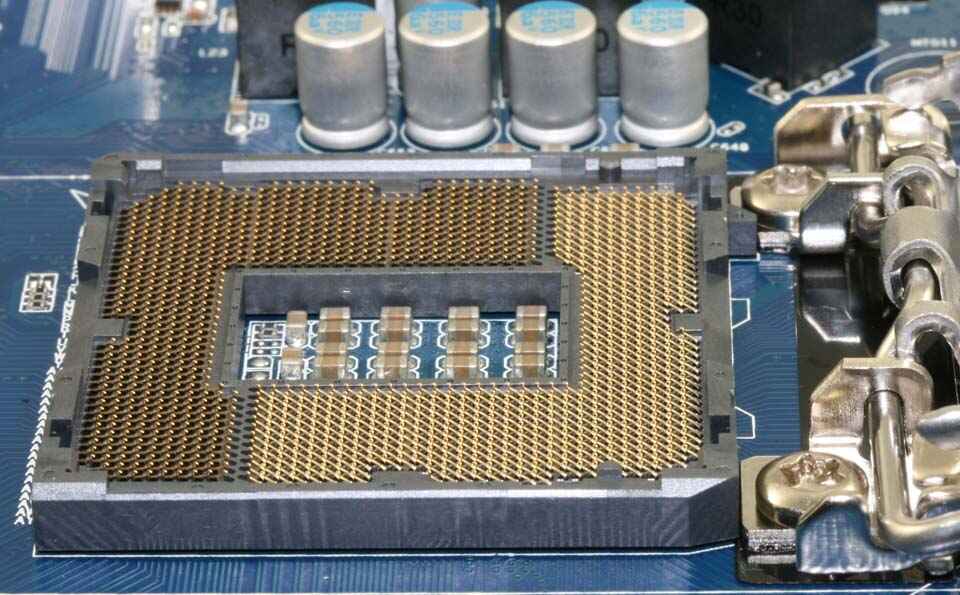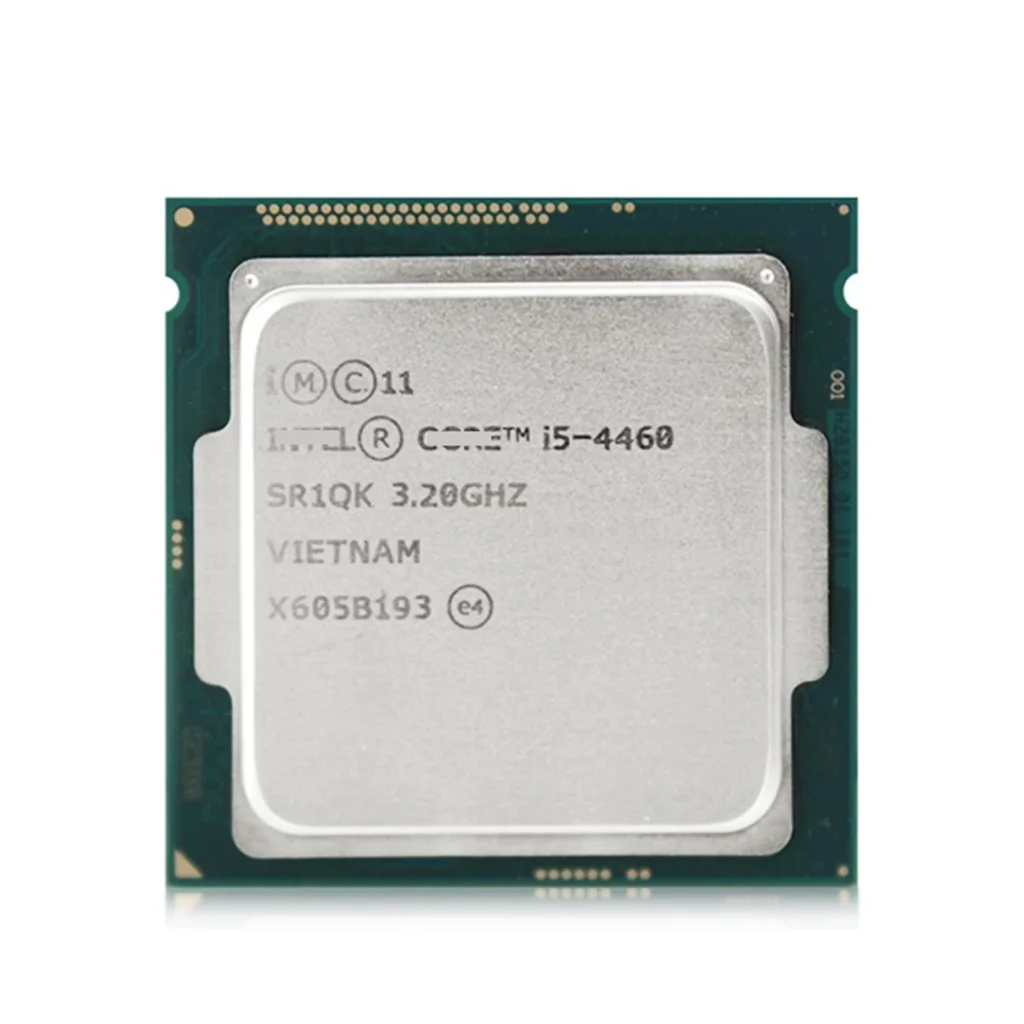The LGA1150 socket, also known as Socket H3, was introduced by Intel as part of its 4th generation Core processors, known as Haswell, and continued to support 5th generation processors, known as Broadwell. Below is an in-depth look at the CPUs compatible with the LGA1150 socket, their features, and how they can meet various computing needs.
“The LGA1150 socket, compatible with Intel’s 4th and 5th generation Core processors, includes CPUs like the Intel Core i7-4790K, i5-4690K, and i3-4160. These processors are suitable for various applications, from gaming to general computing.”
In this article, We will discuss “lga1150 socket cpu list”
Table of Contents
Overview of LGA1150 Socket:

The LGA1150 socket was a significant step forward in CPU technology, providing several enhancements over its predecessor, LGA1155. Here are some key characteristics of the LGA1150 socket:
The LGA1150 socket, or Socket H3, introduced by Intel, supports 4th (Haswell) and 5th (Broadwell) generation Core processors, offering improved power management and compatibility with DDR3 memory. This socket is ideal for gaming and content creation due to its efficiency and stability【6†source】【9†source】.
Enhanced Power Management:
The LGA1150 socket supports advanced power delivery features, ensuring more stable and efficient operation of high-performance CPUs. This is particularly important for gamers and content creators who demand peak performance from their systems.
The LGA1150 socket features enhanced power management that ensures stable and efficient power delivery to high-performance CPUs. This capability is vital for demanding tasks like gaming and content creation, helping maintain system reliability【6†source】【9†source】.
DDR3 Memory Support:
LGA1150 is compatible with DDR3 memory, which remains a popular choice for many users due to its balance of performance and cost. This allows builders to utilize a wide variety of memory configurations based on their performance needs and budget constraints.
The LGA1150 socket supports DDR3 memory, allowing for a range of configurations that balance performance and cost. This compatibility makes it a popular choice among builders looking to optimize their systems without exceeding budget constraints【7†source】【9†source】.
Also Read: Opencore Cpu Processor Type List – A Complete Hackintosh Guide!
Integrated Graphics Options:
Many LGA1150 processors come with integrated graphics, such as Intel HD Graphics 4600 or 5000, providing satisfactory performance for general tasks and light gaming without requiring a dedicated graphics card. This is ideal for users looking to save on costs while still achieving decent graphics performance.
Many LGA1150 processors feature integrated graphics, such as Intel HD Graphics 4600 or 5000, which provide adequate performance for everyday tasks and casual gaming, eliminating the need for a dedicated graphics card in less demanding setups【6†source】【8†source】.
Detailed LGA1150 Compatible CPUs:

Intel Core i7 Series:
The Intel Core i7 processors are well-known for their excellent performance in gaming and multi-threaded applications. Here’s a closer look at some popular i7 CPUs:
Intel Core i7-4790K:
- Cores/Threads: 4/8
- Base Clock: 4.0 GHz
- Turbo Boost: Up to 4.4 GHz
- Cache: 8 MB Intel Smart Cache
- TDP: 88W
- Ideal Use: Gaming and content creation, providing a strong balance between performance and power consumption.
Intel Core i7-4770K:
- Cores/Threads: 4/8
- Base Clock: 3.5 GHz
- Turbo Boost: Up to 3.9 GHz
- Cache: 8 MB Intel Smart Cache
- TDP: 84W
- Ideal Use: Great for gamers who also need to run resource-intensive applications
- simultaneously.
Intel Core i5 Series:
The Core i5 series offers excellent mid-range performance for most users, striking a good balance between cost and capability.
Also Read: Env Node Bad Cpu Type In Executable – Step By Step!
Intel Core i5-4690K:
- Cores/Threads: 4/4
- Base Clock: 3.5 GHz
- Turbo Boost: Up to 3.9 GHz
- Cache: 6 MB Intel Smart Cache
- TDP: 88W
- Ideal Use : Perfect for gamers who want solid performance without breaking the bank.
Intel Core i5-4570:
- Cores/Threads: 4/4
- Base Clock: 3.2 GHz
- Turbo Boost: Up to 3.6 GHz
- Cache: 6 MB Intel Smart Cache
- Ideal Use: Suitable for everyday tasks and moderate gaming.
Intel Core i3 Series:
The Core i3 series is targeted at budget users who still want reliable performance for basic tasks and light gaming.
Intel Core i3-4160:
- Cores/Threads: 2/4
- Base Clock: 3.6 GHz
- Cache: 3 MB Intel Smart Cache
- TDP: 54W
- Ideal Use: Best for users who primarily perform office tasks and occasional light gaming.
Intel Core i3-4130:
- Cores/Threads: 2/4
- Base Clock: 3.4 GHz
- Cache: 3 MB Intel Smart Cache
- TDP: 54W
- Ideal Use: Great for basic home computing and media consumption.
Intel Pentium and Celeron:
For those on an extremely tight budget, the Pentium and Celeron lines provide basic performance without advanced features.
Intel Pentium G3258:
- Cores/Threads: 2/4
- Base Clock: 3.2 GHz
- Cache: 2 MB Intel Smart Cache
- TDP: 53W
- Ideal Use: Ideal for entry-level gaming and basic computing tasks.
Intel Celeron G1840:
- Cores/Threads: 2/2
- Base Clock: 2.8 GHz
- Cache: 2 MB Intel Smart Cache
- TDP: 54W
- Ideal Use: Suitable for very basic tasks such as web browsing and document editing.
FAQ’s
1. What CPUs are compatible with the LGA1150 socket?
The LGA1150 socket supports a range of Intel processors, including the 4th generation Core i7 (like the i7-4790K), Core i5 (like the i5-4690K), Core i3 (like the i3-4160), and lower-end Pentium and Celeron processors【6†source】【7†source】.
2. Is the LGA1150 socket suitable for gaming?
Yes, the LGA1150 socket supports high-performance CPUs like the i7-4790K and i5-4690K, making it suitable for gaming and demanding applications, providing excellent performance for most games【8†source】【9†source】.
3. What is the maximum supported memory for LGA1150 CPUs?
LGA1150 processors typically support DDR3 memory, with a maximum of 32GB for most CPUs, depending on the motherboard configuration【10†source】 .
4. Can I use an LGA1150 CPU in a newer motherboard?
No, LGA1150 CPUs are specifically designed for LGA1150 motherboards and are not compatible with newer sockets like LGA1151 or LGA1200 due to physical and electrical differences .
5. What should I consider when upgrading my LGA1150 CPU?
When upgrading, ensure compatibility with your motherboard, consider the cooling solution, and verify that your power supply can handle the new CPU’s power requirements .
Conclusion
In conclusion, the LGA1150 socket is a versatile option for various Intel processors, primarily from the 4th and 5th generations. It supports a range of CPUs suitable for gaming and everyday computing tasks, offering solid performance for most users. When considering upgrades or new builds, ensure compatibility with your motherboard and power supply requirements to maximize your system’s potential. For more detailed information, you can refer to sources like [Tom’s Hardware](https://www.tomshardware.com) and [TechSpot](https://www.techspot.com).

